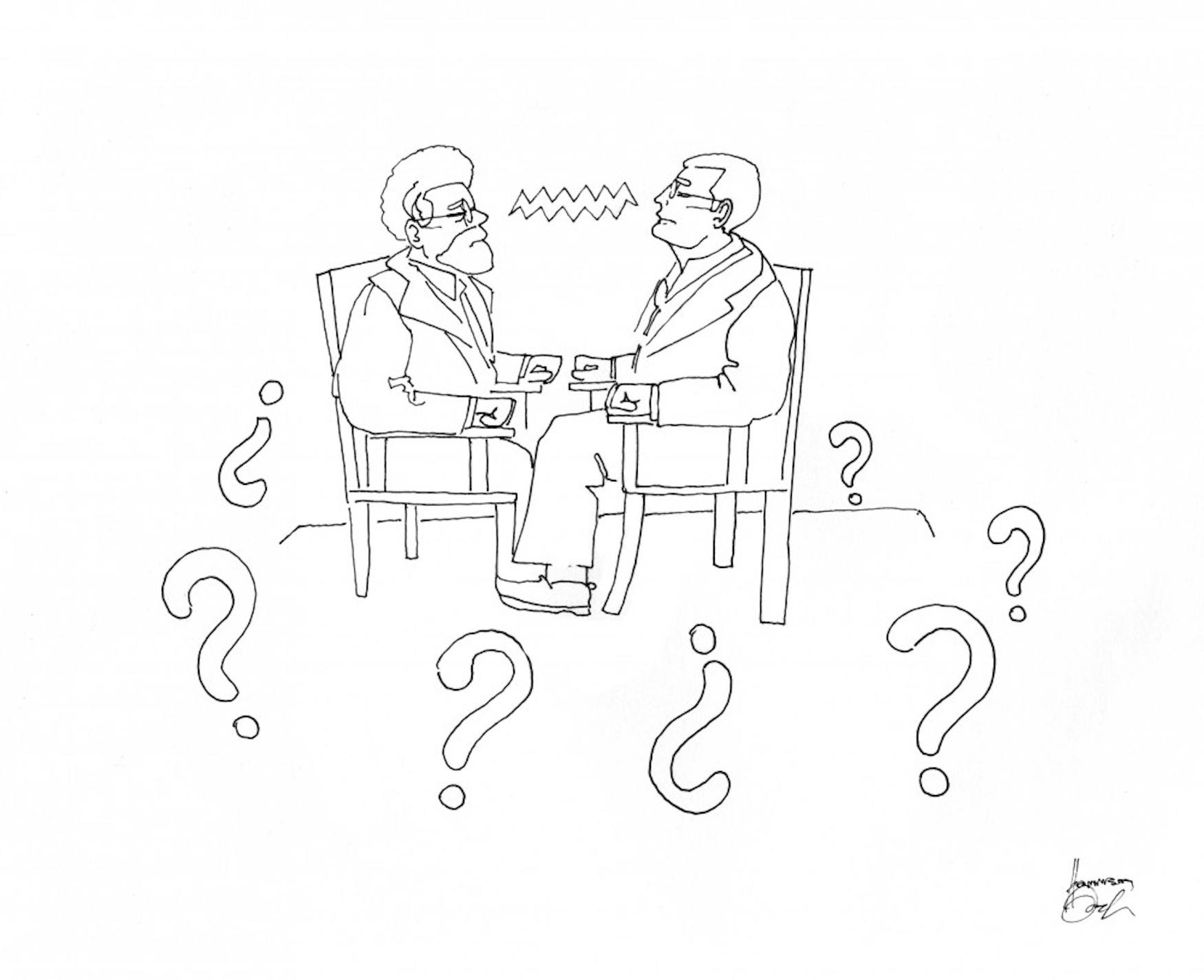Editorial: Cornel West- Robert George debate not quite as advertised
Last Tuesday, the American Studies department, along with several other departments, aided by a donation from Kent Lawrence ’66, brought conservative legal scholar Robert George and democratic socialist political activist Cornel West together for an event titled “Liberal Learning: Open Minds and Open Debate.”
George, a Princeton professor and founder of the National Organization for Marriage, and West, Harvard Professor and Honorary Co-Chair of the Democratic Socialists of America, are at opposite ends of the political spectrum. This board applauds University departments for recognizing the need for open political discussion within the Brandeis community. Unfortunately, the event itself was lackluster and failed to provide any real, meaningful debat
Last Tuesday, the American Studies department, along with several other departments, aided by a donation from Kent Lawrence ’66, brought conservative legal scholar Robert George and democratic socialist political activist Cornel West together for an event titled “Liberal Learning: Open Minds and Open Debate.”
George, a Princeton professor and founder of the National Organization for Marriage, and West, Harvard rofessor and Honorary Co-Chair of the Democratic Socialists of America, are at opposite ends of the political spectrum. This board applauds University departments for recognizing the need for open political discussion within the Brandeis community. Unfortunately, the event itself was lackluster and failed to provide any real, meaningful debate. Throughout their speeches, both West and George touted the importance of a liberal arts education and of teaching students how to approach debates and disagreements. Both emphasized casting pride aside and considering at all times the possibility that you might be wrong. Without this, they said, debates become about winning and not about learning from one another and broadening our perspectives.
Notwithstanding these worthwhile points, the scholars did not take the opportunity to model productive debate themselves. West and George spoke in turns, each for about 40 minutes, taking up a bulk of the hour-and-a-half-long event. This format kept the interactions between the speakers to a minimum, each patiently waiting as the other addressed the crowd. As the majority of the event was comprised of monologues from West and George, very little time remained for questions from students—only three were taken before the speakers were ushered to a private dinner. Of the hundreds of students in attendance for the event, only about 15 were admitted to the dinner. The poster for the event promoted it as an “evening conversation” with both scholars, yet students were not able to actually engage in a conversation.
West and George have contrasting views that would have made for an engaging debate, and the organizers should have structured the event such that audience members would have had more time to engage both speakers on specific topics. Having two invited speakers simply to talk to the audience is still commendable, and other recent events on other college campuses such as Swarthmore featuring West and George have followed the same format. If the departments involved in organizing last Tuesday’s event intended it to be more a lecture and less a debate, they should have advertised it as such.



Please note All comments are eligible for publication in The Justice.